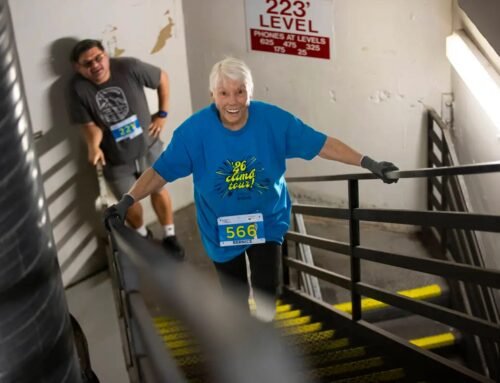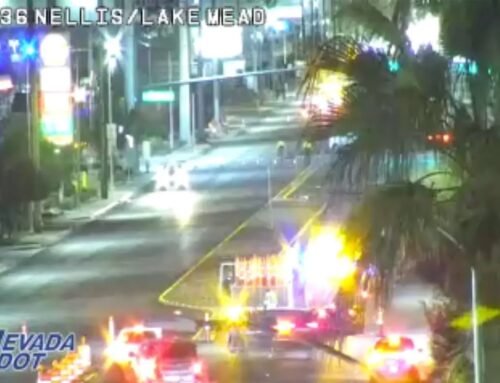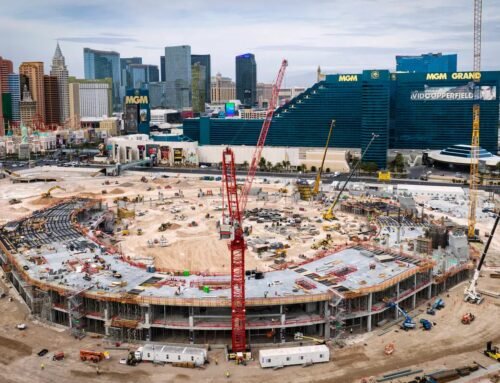Nevada lawmakers are considering legislation that would allow the use of traffic cameras in construction zones, another iteration of a longstanding contentious proposal to use high-speed cameras to enforce traffic laws.
Assembly Bill 402, sponsored by Democratic Assemblymember Selena Torres-Fossett of Las Vegas, seeks to authorize transportation departments and commissions to install automated traffic enforcement systems to enforce speed limits in construction zones.
Another bill — Senate Bill 415 — would allow traffic cameras to be installed in areas with a high rate of crashes and where traditional traffic enforcement methods have failed. The legislation is scheduled to go before lawmakers March 31.
Under current Nevada law, the government is prohibited from using photographic, video or digital equipment to gather evidence to issue a traffic citation, unless it is a recording device worn by an officer or is installed within a law enforcement agency facility.
Traffic safety advocates for years have pushed similar proposals to use traffic cameras to enforce speeds, but lawmakers on both sides of the aisle have killed past bills.
Now, Clark County Sheriff Kevin McMahill has taken up the torch on the issue, calling for the installation of red-light and speed cameras in Las Vegas, but the uphill battle to consider any use of traffic cameras remains — as evidenced in a Tuesday Assembly Committee on Growth and Infrastructure meeting.
Torres-Fossett’s bill would enforce infractions of 10 mph above the speed limit in construction zones.
The cameras would only be in use when workers are present, and signs would be placed at the beginning of the work zone indicating the use of the automatic traffic software. The data the camera collects will go to law enforcement — not the software company — and the citation would be sent to the registered owner of the vehicle, Torres-Fossett said.
The funds collected would cover the cost of using the automatic traffic enforcement systems; the rest would go toward public infrastructure, Torres-Fossett said.
“The intent is really for people who are just quite honestly ignoring the law in these construction zones,” Torres-Fossett said.
In the past five years, there have been 7,000 crashes in Nevada work zones that have resulted in the death of 17 people, said Alexis Motarex, director of government affairs for the Associated General Contractors of Nevada.
“Speed enforcement cameras save lives,” Motarex said, pointing to states where crashes fell in states that enacted work-zone speed cameras.
About a dozen construction, transportation and law enforcement representatives testified in support of the bill for safety reasons.
Chris Burke, the regional vice president for Granite Construction, said his employees work on Nevada’s highways every day, and it is a scary environment.
“Our employees are literally working just steps away from traffic motorists going by 65-75 miles an hour,” Burke said. “Motorists just don’t pay attention, which creates a greater risk for all of our employees.”
But opponents — who include both the American Civil Liberties Union of Nevada and the Nevada Republican Party — brought up their own concerns of privacy and surveillance, with one concerned resident calling the use of traffic cameras “Orwellian infrastructure.”
Jim DeGraffenreid with the Nevada Republican Party said that while the proposed legislation only addresses construction zones, it could make it easier to expand the use of traffic cameras elsewhere. The party also expressed concerns about the generation of more government revenue, and that the burden of proof is placed on the owner of the vehicle.
“We urge the committee to consider alternatives to focus on improving road safety without the drawbacks of this bill,” he said. “We all care about the safety of hard-working road workers who should not have to do their job in fear of dangerous drivers.”
Contact Jessica Hill at jehill@reviewjournal.com. Follow @jess_hillyeah on X.






Leave A Comment